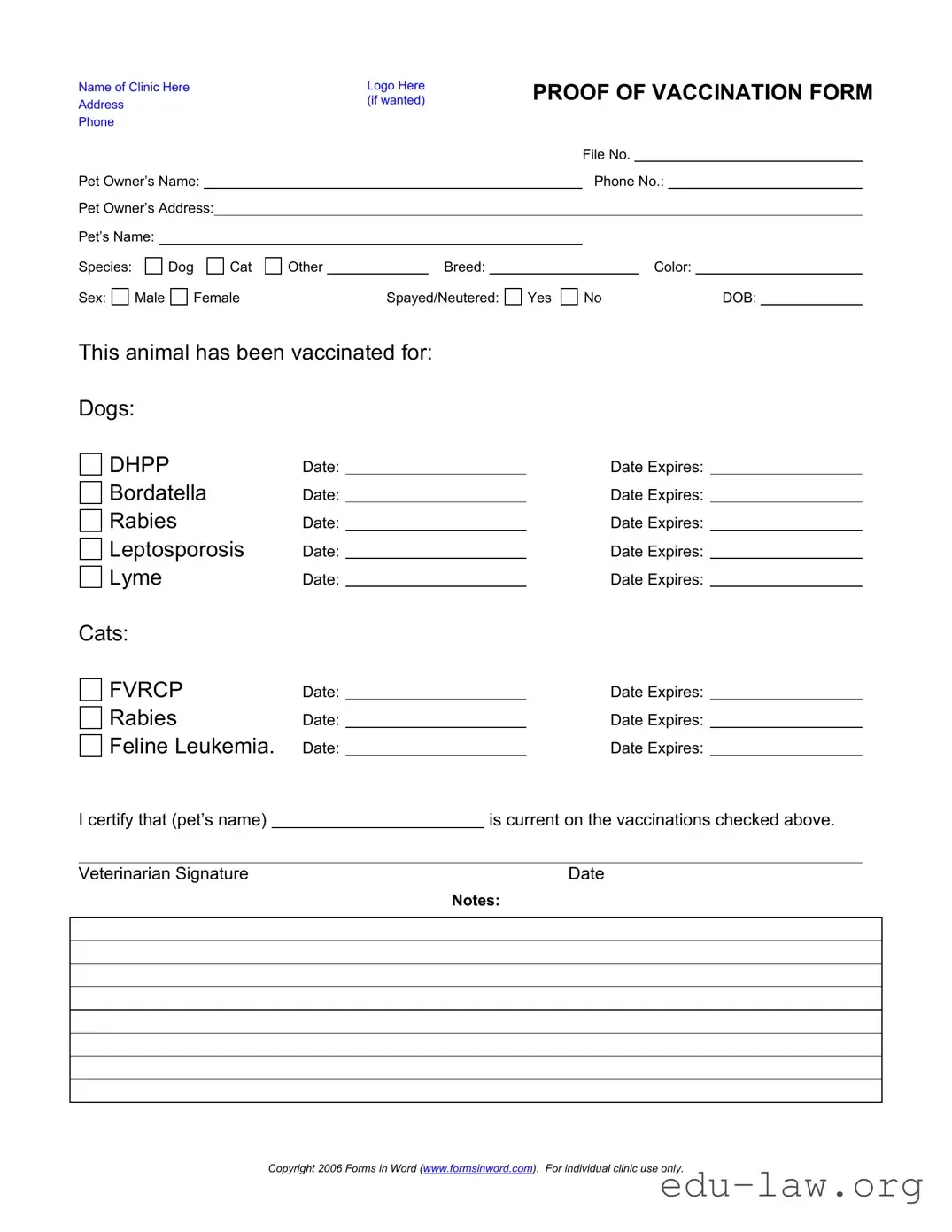What information is required on the Proof of Vaccination Dog form?
The form requires several key pieces of information. This includes the pet owner's name, phone number, and address. Additionally, the form captures details about the dog, such as its name, breed, color, sex, whether it is spayed or neutered, and its date of birth. Finally, it lists the vaccinations that the dog has received, including the dates administered and when they expire.
Who needs to fill out the Proof of Vaccination Dog form?
Pet owners must complete the form to confirm their dog's vaccination status. Veterinarians also play a role, as they provide signatures to certify the accuracy of the information. The form helps facilitate clear communication between pet owners and facilities, such as boarding kennels or dog parks, that require vaccination documentation.
What vaccinations are typically listed on the form?
The form includes several vaccinations commonly administered to dogs. These are DHPP, Bordetella, Rabies, Leptospirosis, and Lyme disease. Each vaccination comes with a date of administration and the date it will expire. This information helps ensure the dog is up to date on required vaccinations.
Why is it important to keep the Proof of Vaccination Dog form updated?
Keeping the form updated is crucial for several reasons. Facilities often require proof of current vaccinations to protect the health of all animals. Additionally, many states have legal requirements regarding dog vaccinations. An up-to-date form helps avoid health risks for the dog and provides peace of mind for the owner.
Where can I obtain a Proof of Vaccination Dog form?
Typically, the form can be requested from the veterinarian’s office where the dog receives vaccinations. Many veterinary clinics may also provide the form online for easy access. Checking with local animal clinics and their websites can provide additional options for obtaining the necessary form.
Is the form valid if signed by a veterinarian other than my dog's regular vet?
Yes, the form can be considered valid if signed by a licensed veterinarian, regardless of whether they are your dog's regular vet. The key is that the signature should confirm that the dog is current on its vaccinations. However, some facilities may prefer documentation from the dog's regular veterinarian, so it's advisable to check their specific requirements.
What do I do if my dog has not received some vaccinations yet?
If your dog has not received certain vaccinations, it is important to schedule an appointment with a veterinarian. The vet can provide the necessary vaccinations and assist in completing the form accurately. If immediate proof is required for specific situations, the pet owner may need to provide a statement indicating the vaccinations that are pending.

